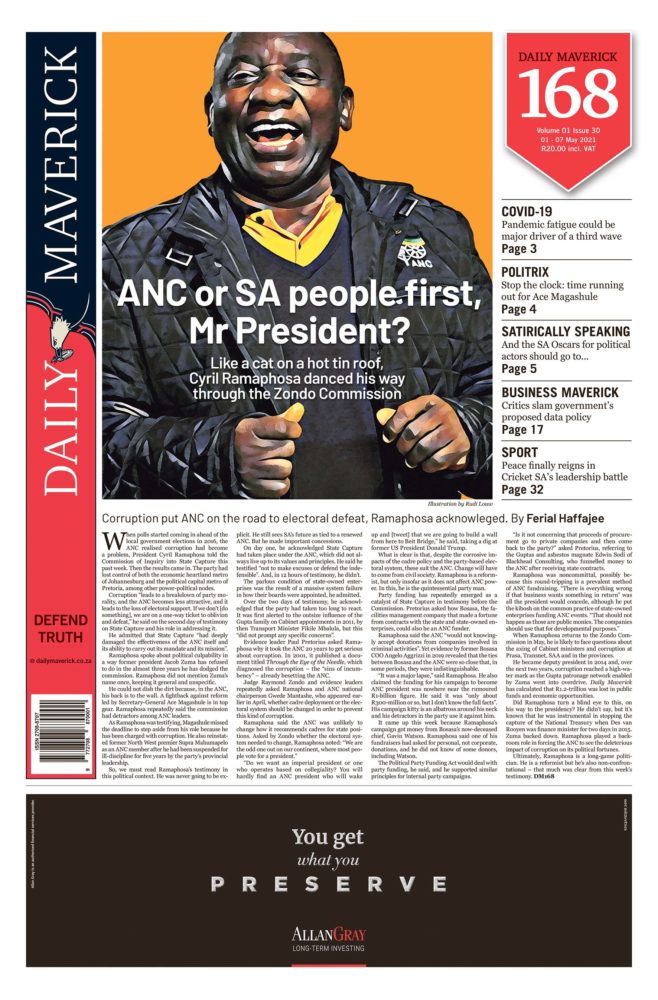First published in the Daily Maverick 168 weekly newspaper.
“Do pink noses like you ever see people like me cruising around the world on a yacht?” The question was asked with warmth by the Department of Transport official of the Ocean Cruising Club official. To be able to ask – and answer – such a racially charged question, without offence, reflects the degree of understanding reached between these two parties. So much so that a new organisation – the Ocean Sailing Association of Southern Africa (Osasa) – has been established with the government’s blessing. It will act as the liaison body working with the government on behalf of the offshore and coastal cruising communities.
It didn’t start like that. But, before I get to the story, the context:
Thirty-one years after Nelson Mandela was released from jail and 27 years after our democratic elections, this past Freedom Day should have been a celebration. Instead, we are jaded.
Many people dwelt on problems, wasted opportunities and what could have been. Democracy feels like an illusion; the will of the people is ignored and abused by politicians for private gain. Corruption is systemic, the education system – intended to lift people out of poverty – is doing the reverse, and service delivery is insulting.
Unsurprisingly, South Africans are tetchy with one another and distrust is the order of the day – just look at our mines and labour relations. It is easy to buy into the narrative that this is South Africa today and the future looks worse. But go a little deeper and it’s possible to find extraordinary things happening. And, usually, there is an extraordinary individual or three involved.
And now for the story. Last year, under the lockdown, SA authorities denied entry to cruising yachts, as did many other countries and islands. But this was a problem because SA is a “corridor country” and plays a vital role in enabling a passage between the Indian and Atlantic Oceans without the yachts having to sail through the Red Sea – which means sailing up the east coast, past Somalia, where piracy is rife. Seeing the problem, three South African cruisers (people who travel on yachts), Peter Sherlock, John Franklin and Jenny Crickmore-Thompson, lobbied the Department of Home Affairs and the Department of Transport for the movement of incoming small craft (as they insist on calling cruising yachts).
The worst of petty bureaucracy, officialdom and small power trips seemed to rise up. It took four months of intense negotiation, lots of phone calls, WhatsApp and email messages, and several physical meetings with the various department heads and the National Covid Command Council before the government finally allowed cruisers to enter a South African harbour – but only as a port of refuge, to refuel, reprovision and effect the most basic of repairs. The travellers (who had been isolated at sea for at least two weeks) could not disembark or enter the country officially. So it was some help, but not enough.
But just as there are officials who seem to delight in stonewalling, so there are officials who are enlightened and hard-working. The breakthrough came when the deputy director of Home Affairs and the deputy director of Transport asked for a meeting. And this is where the magic happened.
Crickmore-Thompson and Franklin spent “an amazing afternoon” with the officials, explaining what a “yachtie” was, why people sailed around the world, how they could live aboard for months, even years, at a time, what their needs and requirements were, and the immense value they bring to SA: an ordinary family on an ordinary yacht with no major repairs can spend R350,000 on minor repairs, refuelling and travel in SA.
Multiply that by 200 (the number of yachts we welcome in an ordinary year) and it is a good income for the country’s many harbours and the small businesses associated with them. The officials, who had no feeling for the sea or concept of sailing, and in fact had a fairly strong dislike of the water, came away with a new understanding of a small but important component of SA’s maritime economy. One of the officials even signalled her intention to sign up for the Cape2Rio yacht race!
And so Marine Notice 50 arrived, a directive from the government allowing all foreign small craft to come in, as part of a humanitarian project, for a limited period from 9 November to 15 December and to enter the country as tourists. The floodgates opened. The directive has been extended and SA has since welcomed about 80 yachts.
This relationship will not die as Covid-19 eases. Now with common goals and understanding, it can only grow as Osasa works to encourage local cruising in small vessels along the southern African coast and to popularise southern Africa as a cruising destination of choice, especially with its myriad choices for land travel combined with cruising.
This is a small story, but it gives me hope that, as a nation, as a diverse people, we can navigate the obstacles to find each other and our common cause. DM168
This story first appeared in our weekly Daily Maverick 168 newspaper which is available for free to Pick n Pay Smart Shoppers at these Pick n Pay stores.


















 Become an Insider
Become an Insider
Comments - Please login in order to comment.